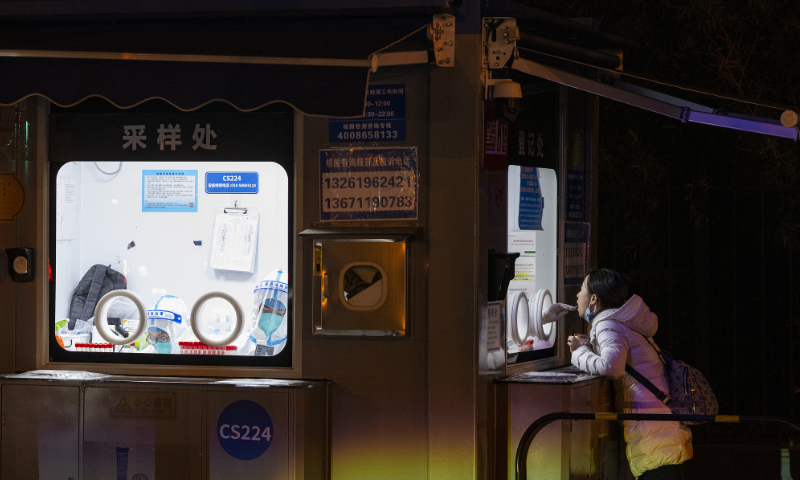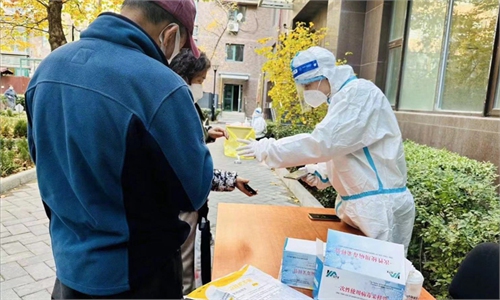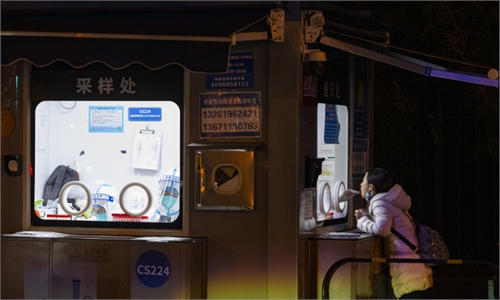Beijing's most populous district advises residents to stay put during weekend to curb COVID spike

The photo taken on November 15, 2022 shows a nucleic acid testing site in Chaoyang district, Beijing. Photo: VCG
Beijing's daily number of COVID-19 infections has exceeded 400 and the rate is growing, said officials at a press conference on epidemic prevention and control on Friday. Chaoyang district, the worst-hit and also the most populous district in the city, advised residents to stay put during the weekend and not leave the area unless necessary.
The Chinese capital has seen a surge in COVID-19 infections in recent days, with cases being found at the community level continuing to increase and the scope of the wave gradually expanding, Xu Hejian, spokesperson for the municipal government, said at Friday's press conference.
From Sunday to Thursday, Beijing recorded a total of 276 cases at the community level, and the risk of hidden transmission in the city persists, he warned.
On Friday alone, some 232 infections have been reported, and 42 cases were found at the community level. Among the patients, 71 were in Chaoyang district, a core district of Beijing that is home to foreign embassies, shopping malls and residential areas.
To better curb the spread of Omicron BF.7, which according to officials is different from previous variants and is extremely contagious and insidious, the local government has decided to step up measures, strengthening the management of personnel flow and public venues.
Local authorities advised Chaoyang residents not to leave the district unless necessary, and if they do, they must provide negative nucleic acid test results taken within 48 hours.
Flexible working is also encouraged via the internet to avoid gathering.
For the coming weekend, Chaoyang officials suggested residents should stay put in their homes, while vowing that they will make every effort to provide public services, and businesses that play a key role in residents' daily lives will maintain normal operation.
"The occasional 'staying put' approach is a good way to cut off virus transmission as soon as possible and protect the health of all of us," Yang Beibei, deputy head of Chaoyang district, said on Friday, imploring residents to continue to cooperate with the government.
Chaoyang district has recently come under the spotlight after it closed some of the nucleic acid test stations and shortened the time available for testing, which drew controversy among the public as some residents found it hard to find a test spot after work.
Responding to the controversy, the district announced on Tuesday that it will open 1,854 nucleic acid test points, and will require neighborhood communities to open these sites as early as 6:30 am and keep them open till late.
At a conference on Tuesday, Beijing officials vowed again to increase test sites in places where the virus is rife, and to keep up test capacity.
Global Times


